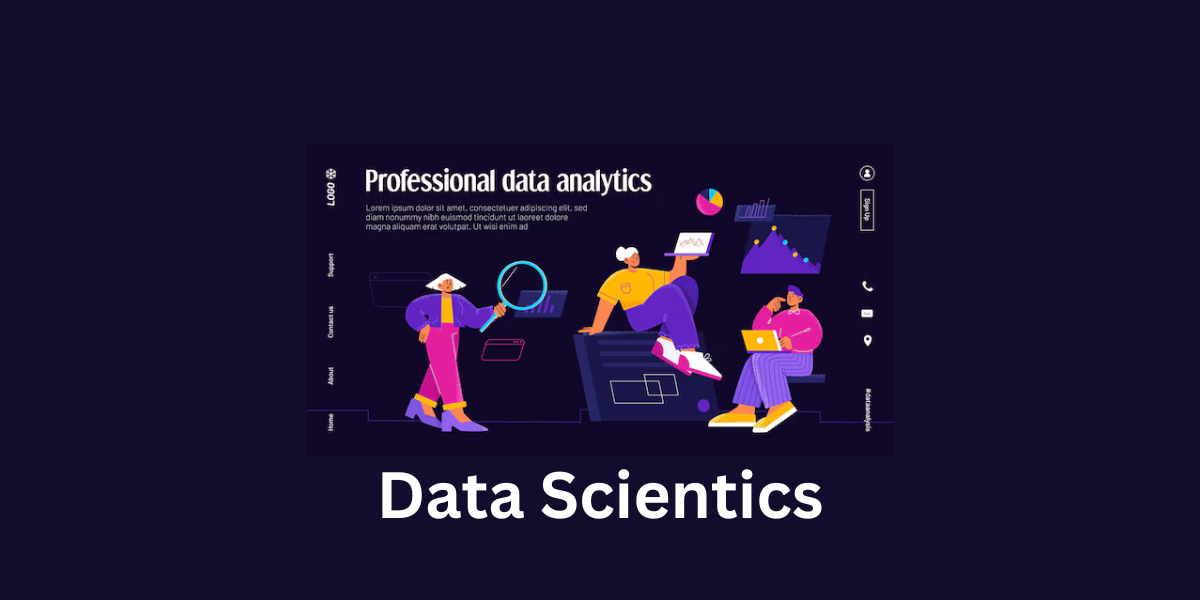Introduction
Is work experience a must to become a data scientist? Many aspiring professionals wonder if they can land a job in this field without previous experience. While experience certainly helps, it’s not the only path to success. In this article, we’ll explore whether work experience is necessary for data science and what alternatives can help you break into this high-demand field.
Understanding Data Science
What Does a Data Scientist Do?
A data scientist analyzes complex data to extract insights, make predictions, and solve problems. They use programming, statistics, and machine learning to turn raw data into actionable knowledge.
Key Skills Required
- Programming (Python, R, SQL)
- Machine learning and AI
- Data visualization (Tableau, Power BI)
- Statistical analysis
- Problem-solving and critical thinking
Importance of Work Experience in Data Science
Learning Through Real-World Projects
Work experience helps data scientists apply their knowledge to real-world problems. Handling large, messy datasets and optimizing models for production are things rarely covered in textbooks.
Handling Real Datasets
Unlike clean datasets used in courses, real-world data is messy. Work experience helps in dealing with missing values, outliers, and inconsistencies.
Working with Teams
Most data science roles involve teamwork. Experience in a collaborative environment enhances problem-solving and communication skills.
Can You Become a Data Scientist Without Experience?
Yes! Many professionals break into data science without prior experience by leveraging other methods.
Learning from Online Courses and Bootcamps
Platforms like Coursera, Udacity, and edX offer excellent data science courses that teach industry-relevant skills.
Personal Projects and Kaggle Competitions
Building projects and participating in Kaggle competitions provide hands-on experience and improve your problem-solving skills.
Alternative Ways to Gain Experience
Internships and Apprenticeships
Many companies offer internships that provide valuable industry exposure.
Open-Source Contributions
Contributing to open-source projects helps build credibility and hands-on experience.
Freelancing and Contract Work
Platforms like Upwork and Fiverr allow aspiring data scientists to gain experience by working on small projects.
Importance of a Strong Portfolio
A strong portfolio showcasing real-world projects can often replace traditional work experience. Use GitHub, Kaggle, and personal blogs to display your skills.
Education vs. Experience
While formal education is beneficial, practical knowledge often outweighs theoretical degrees. Many successful data scientists are self-taught.
How to Land Your First Data Science Job Without Experience
Networking and Mentorship
Building relationships with industry professionals can open job opportunities.
Certifications and Relevant Coursework
Earning certificates from platforms like Coursera and DataCamp helps validate your skills.
Leveraging LinkedIn and GitHub
A well-optimized LinkedIn profile and active GitHub repository can attract recruiters.
Key Skills That Matter More Than Experience
Employers often prioritize problem-solving skills, programming knowledge, and business acumen over formal experience.
Conclusion
While work experience is valuable, it’s not mandatory for a career in data science. By focusing on self-learning, building a strong portfolio, and networking, you can break into the field without traditional experience.
FAQs
Can I get a data science job without prior experience?
Yes, many companies hire candidates with strong portfolios and relevant skills instead of formal experience.
How can I gain experience if I can’t get a job?
Internships, freelancing, Kaggle competitions, and open-source contributions are great alternatives.
What skills should I focus on first?
Start with Python, SQL, and basic statistics, then move on to machine learning and data visualization.
Does data science require a master’s degree?
Not necessarily. Many successful data scientists are self-taught and rely on certifications, projects, and bootcamps.
What is the duration required to become a data scientist?
It depends on your background and learning pace. Typically, it takes 6 months to 2 years of dedicated learning.

